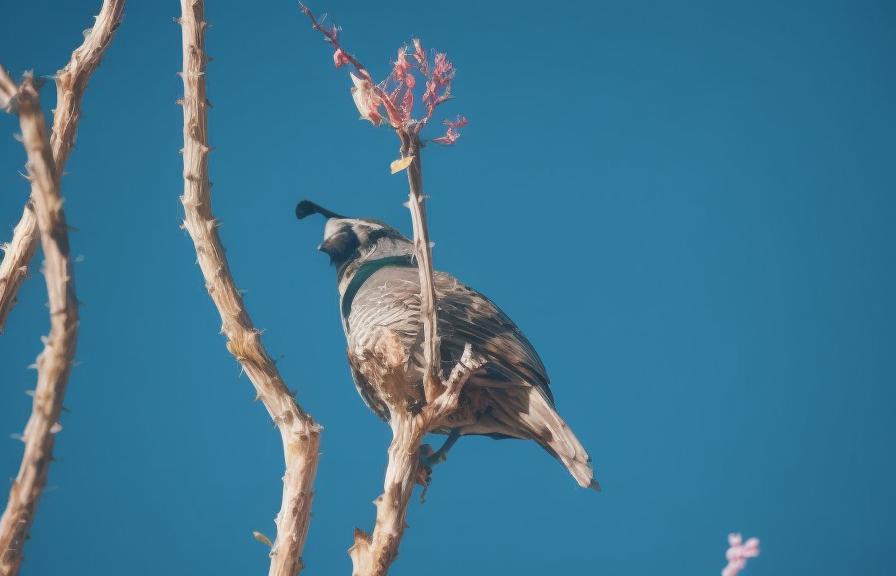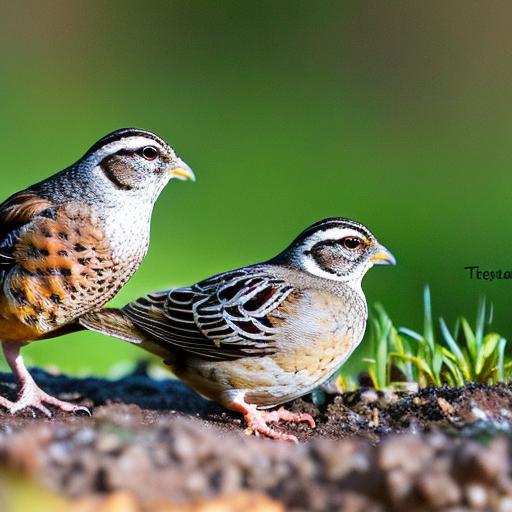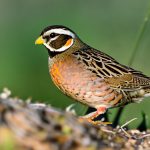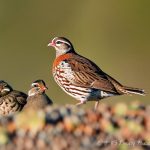Quail keeping has become increasingly popular in Green Township, as more and more people are discovering the joys of raising these small, charming birds. Quail are known for their gentle nature, beautiful plumage, and delightful calls, making them a wonderful addition to any backyard or homestead. Whether you are interested in quail for their eggs, meat, or simply as pets, there are many benefits to keeping these birds. In this article, we will explore the legal considerations, housing and enclosure requirements, feeding and nutrition needs, health and veterinary care, as well as noise and odor considerations for keeping quail in Green Township. By the end of this article, you will have a comprehensive understanding of what it takes to successfully raise quail in this area.
Quail keeping can be a rewarding and enjoyable hobby, but it is important to be well-informed before embarking on this endeavor. With the right knowledge and preparation, you can create a safe and comfortable environment for your quail to thrive. From understanding the local regulations to providing proper housing and nutrition, there are many factors to consider when keeping quail in Green Township. Whether you are a beginner or an experienced poultry keeper, this article will provide valuable insights into the world of quail keeping in this specific region. So, let’s dive in and explore the ins and outs of raising quail in Green Township.
Key Takeaways
- Quail keeping in Green Township offers a unique and rewarding experience for enthusiasts.
- Understanding the legal considerations for keeping quail in Green Township is crucial to avoid any potential issues.
- Proper housing and enclosure requirements are essential for the health and safety of quail in Green Township.
- Providing the right feeding and nutrition for quail in Green Township is key to their overall well-being.
- Health and veterinary care are important aspects of responsible quail keeping in Green Township.
Legal Considerations for Keeping Quail in Green Township
Before starting a quail keeping venture in Green Township, it is crucial to be aware of the legal considerations and regulations that govern the keeping of these birds. Local ordinances and zoning laws may have specific requirements and restrictions related to the keeping of poultry, including quail. It is important to research and understand these regulations to ensure compliance and avoid any potential legal issues.
In Green Township, there may be regulations regarding the number of quail allowed per property, setback requirements for coops or enclosures, and restrictions on noise and odor. Additionally, there may be specific permits or licenses required for keeping quail, especially if you plan to sell quail eggs or meat. It is advisable to contact the local zoning department or animal control office to inquire about the specific regulations that apply to quail keeping in Green Township. By understanding and adhering to the legal considerations, you can establish a responsible and lawful quail keeping operation in your area.
In addition to local regulations, it is also important to consider any homeowners’ association rules or covenants that may impact the keeping of quail on residential properties. Some neighborhoods may have restrictions on the types of animals allowed or the construction of poultry enclosures. By familiarizing yourself with these legal considerations, you can ensure a smooth and compliant experience with keeping quail in Green Township.
Housing and Enclosure Requirements for Quail in Green Township
When it comes to housing and enclosure requirements for quail in Green Township, providing a safe and comfortable living space for your birds is essential. Quail are ground-dwelling birds that require protection from predators and the elements, as well as ample space to move around and exhibit natural behaviors. The type of housing and enclosure you choose will depend on the number of quail you plan to keep, your available space, and your budget.
For smaller quail operations, a simple yet sturdy coop or hutch may be sufficient to house your birds. The coop should provide protection from predators such as raccoons, foxes, and birds of prey, as well as shelter from wind, rain, and extreme temperatures. It should also have adequate ventilation to prevent moisture buildup and ensure good air quality for the quail. Additionally, the coop should be easy to clean and maintain to promote the health and well-being of the birds.
For larger quail operations, a dedicated quail house or aviary may be more suitable. This type of enclosure can provide more space for the quail to roam and forage, as well as opportunities for natural behaviors such as dust bathing and nesting. The aviary should be constructed with predator-proof materials and have secure fencing to prevent escapes. It should also include areas for roosting, nesting boxes for egg-laying quail, and access to fresh food and water.
Regardless of the size of your quail operation, it is important to provide a safe outdoor run or pen where the quail can enjoy fresh air, sunshine, and access to natural vegetation. This outdoor space should be securely fenced to prevent predators from entering and quail from wandering off. By meeting these housing and enclosure requirements, you can create a comfortable and secure environment for your quail in Green Township.
Feeding and Nutrition for Quail in Green Township
Feeding and nutrition are critical aspects of quail keeping in Green Township, as a well-balanced diet is essential for the health and productivity of these birds. Quail have specific dietary requirements that must be met through a combination of commercial feed, fresh foods, and supplemental sources of nutrients. By understanding their nutritional needs and providing appropriate feeding practices, you can ensure that your quail remain healthy and produce high-quality eggs or meat.
Commercial quail feed is readily available and formulated to meet the nutritional requirements of these birds at different life stages. When selecting a commercial feed for your quail, look for options that are specifically designed for quail and contain essential nutrients such as protein, vitamins, minerals, and amino acids. Starter feeds are suitable for young quail chicks, while grower and layer feeds are tailored for growing birds and laying hens, respectively. It is important to provide the appropriate feed for each stage of your quail’s life cycle to support their growth and development.
In addition to commercial feed, quail can benefit from a variety of fresh foods and supplemental sources of nutrition. Fresh fruits and vegetables such as leafy greens, carrots, berries, and melons can be offered as treats to provide additional vitamins and minerals. Grains such as millet, oats, and wheat can also be provided as part of a balanced diet. Additionally, offering sources of calcium such as crushed oyster shells or eggshells can help support strong eggshell formation in laying hens.
Water is another essential component of a quail’s diet, as it is crucial for digestion, temperature regulation, and overall health. Clean, fresh water should be available at all times in a shallow dish or waterer that is easily accessible to the quail. It is important to monitor water quality and refill the water container regularly to ensure that your quail remain properly hydrated.
By providing a well-rounded diet that meets their nutritional needs, you can support the health and vitality of your quail in Green Township. Monitoring their feeding habits and adjusting their diet as needed will help ensure that they receive the proper nutrients for optimal growth and production.
Health and Veterinary Care for Quail in Green Township
Maintaining the health and well-being of your quail is essential for a successful quail keeping experience in Green Township. While quail are generally hardy birds, they can be susceptible to certain health issues that require attention and care. By implementing good management practices and being proactive about veterinary care, you can help prevent illness and promote the overall health of your quail flock.
Regular observation of your quail is key to identifying any signs of illness or injury early on. Watch for changes in behavior, such as lethargy, decreased appetite, or abnormal vocalizations, as these may indicate underlying health issues. Additionally, monitor the condition of their feathers, skin, eyes, and droppings for any abnormalities that could signal a health problem.
In the event that a quail becomes ill or injured, it is important to have access to veterinary care from a professional experienced in avian medicine. Establishing a relationship with a veterinarian who is knowledgeable about quail health can provide valuable support in managing any health concerns that may arise. Be sure to have contact information for a qualified avian veterinarian on hand so that you can seek assistance promptly if needed.
Preventive measures such as vaccination programs and biosecurity protocols can also help safeguard your quail against common diseases and infections. Consult with a veterinarian or poultry health expert to develop a preventive health plan tailored to the specific needs of your quail flock. This may include vaccinations for diseases such as Newcastle disease or fowl pox, as well as strategies for minimizing exposure to potential pathogens.
In addition to veterinary care, maintaining a clean and sanitary living environment for your quail is crucial for preventing disease outbreaks. Regularly clean and disinfect their housing and enclosure, provide fresh bedding material, and practice good hygiene when handling the birds. By implementing these measures, you can create a healthy environment that supports the well-being of your quail in Green Township.
Noise and Odor Considerations for Keeping Quail in Green Township

When considering keeping quail in Green Township, it is important to take into account potential noise and odor considerations associated with raising these birds. While quail are generally quieter than other poultry species such as chickens or ducks, they do produce vocalizations that may be audible to neighbors in residential areas. Additionally, like all birds, quail produce waste that can contribute to odor if not managed properly.
To minimize noise concerns related to keeping quail in Green Township, consider selecting breeds known for their quieter vocalizations. Some quail breeds are naturally less vocal than others, making them more suitable for urban or suburban settings where noise levels may be a concern. Additionally, providing adequate space between your quail enclosure and neighboring properties can help reduce the transmission of sound.
Managing odor associated with quail keeping involves implementing good manure management practices and maintaining clean living conditions for the birds. Regularly cleaning their coop or enclosure, removing soiled bedding material, and properly disposing of waste can help minimize odor production. Composting manure or using it as fertilizer in a responsible manner can also help reduce odor while recycling nutrients.
In addition to proactive odor management, open communication with neighbors about your quail keeping plans can help address any potential concerns they may have regarding noise or odor. By being transparent about your intentions to keep quail and demonstrating responsible animal husbandry practices, you can foster positive relationships with those around you.
Ultimately, by being mindful of noise and odor considerations associated with keeping quail in Green Township, you can take proactive steps to minimize potential impacts on your community while enjoying the benefits of raising these delightful birds.
Is Keeping Quail in Green Township Right for You?
In conclusion, keeping quail in Green Township can be a rewarding experience for those who are prepared to meet the legal considerations, housing requirements, feeding needs, health care responsibilities, and noise/odor considerations associated with raising these birds. By understanding the specific regulations that apply to quail keeping in this area and providing appropriate housing and enclosure facilities for your birds, you can establish a compliant and comfortable environment for them to thrive.
Meeting the nutritional needs of your quail through proper feeding practices and veterinary care is essential for supporting their health and productivity. By being proactive about preventive health measures and seeking professional veterinary assistance when needed, you can help ensure that your quail remain healthy and resilient.
Finally, being mindful of potential noise and odor considerations associated with keeping quail in residential areas can help foster positive relationships with neighbors while enjoying the pleasures of raising these charming birds.
Ultimately, whether keeping quail in Green Township is right for you will depend on your willingness to meet these various considerations while providing attentive care for your birds. With proper planning and dedication, raising quail can be a fulfilling endeavor that brings joy and valuable resources to your homestead or backyard in Green Township.
If you’re considering keeping quail in Green Township, you may also be interested in learning about the importance of providing proper heating for a chicken coop. Poultry Wizard has a helpful article on choosing the right heater for a chicken coop, which can be found here. Understanding the heating needs of poultry can be crucial for their well-being, especially in colder climates like Green Township.
FAQs
Can I keep quail in Green Township?
Yes, you can keep quail in Green Township, but it’s important to check the local ordinances and regulations regarding keeping quail on your property.
Do I need a permit to keep quail in Green Township?
It’s important to check with the local authorities in Green Township to see if you need a permit to keep quail on your property. Regulations may vary depending on the specific location within the township.
What are the housing requirements for keeping quail in Green Township?
Quail require a secure and predator-proof housing structure, such as a coop or aviary, to protect them from predators and the elements. The housing should also provide adequate space for the quail to move around and access to food and water.
What do quail eat and where can I get their feed in Green Township?
Quail eat a diet of seeds, grains, and insects. You can typically find quail feed at local feed stores or pet supply stores in Green Township.
Are there any restrictions on the number of quail I can keep in Green Township?
Some areas may have restrictions on the number of quail you can keep on your property. It’s important to check with the local authorities in Green Township to see if there are any limitations on the number of quail you can keep.
Meet Walter, the feathered-friend fanatic of Florida! Nestled in the sunshine state, Walter struts through life with his feathered companions, clucking his way to happiness. With a coop that’s fancier than a five-star hotel, he’s the Don Juan of the chicken world. When he’s not teaching his hens to do the cha-cha, you’ll find him in a heated debate with his prized rooster, Sir Clucks-a-Lot. Walter’s poultry passion is no yolk; he’s the sunny-side-up guy you never knew you needed in your flock of friends!







